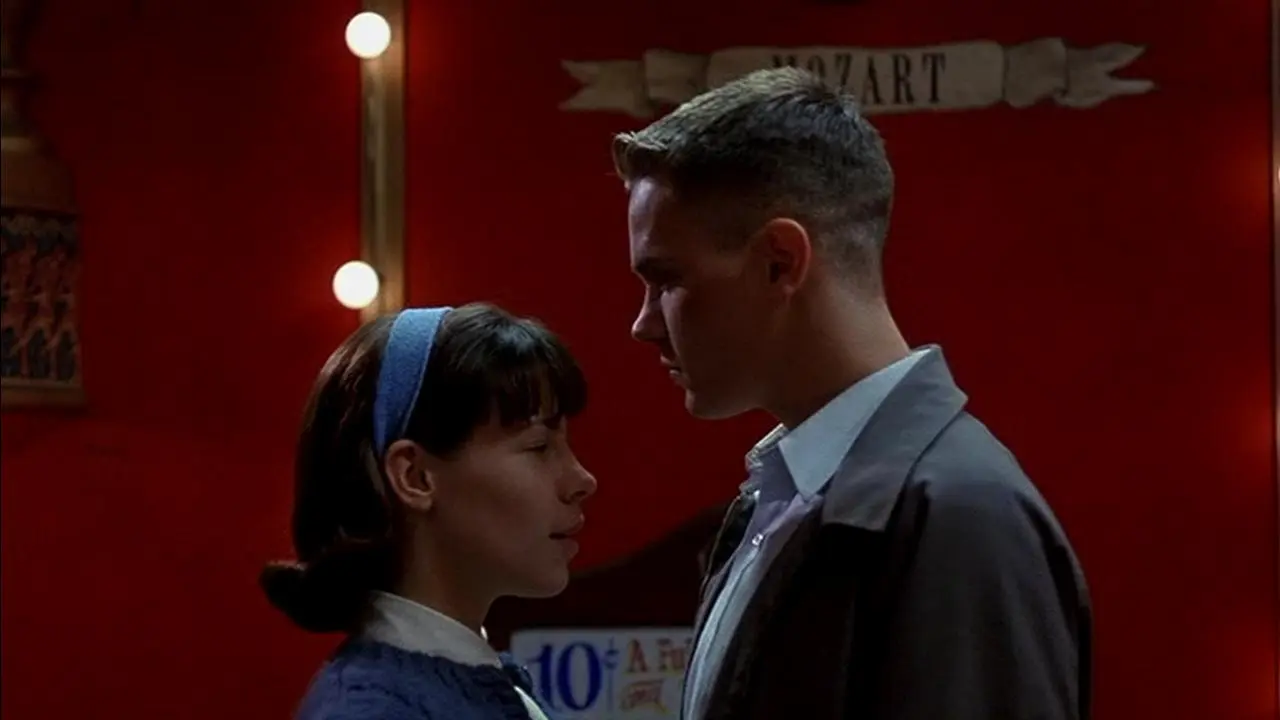WHERE HAS THE TIME ALL GONE TO?

A great double bill I've been thinking about lately would be Mike Nichols' Biloxi Blues, starring Matthew Broderick, and Dogfight, starring River Phoenix and Lili Taylor. Both films explore that same strange space of suspended time in wartime—a genre that began with Stanley Donen's On the Town (1949), where three sailors enjoy 24 hours of freedom in the Big Apple, navigating a mix of lust, love, and melancholy before returning to serve their country.
That bittersweet quality of On the Town's philosophy is perfectly reflected in the beautiful song Some Other Time (not included in the movie version of the original Broadway show but perhaps my favourite of all Bernstein’s compositions), which captures the essence of this conflicted emotion: the joy of living in the moment, tinged with the regret of knowing it won’t last.
I’m in no doubt that this "leave" genre is almost a spiritual genre in itself, reflecting—within its microcosm—a metaphor for the fleeting nature of life. Case in point: in Terrence Malick’s transcendental war film The Thin Red Line (based on James Jones’s novel), Pvt. Witt and his unnamed companion have gone AWOL with Melanesian natives, inhabiting a paradise so idyllic it could almost be heaven on earth—before they’re dragged back to hell in the killing fields of Guadalcanal.
There’s certainly a cruel irony in these two men finding paradise so close within their grasp, only to have it snatched away—just like all our attempts to hold onto happiness before the clouds of suffering return to remind us it won’t last.
Of course, some might accuse Malick’s romanticised depiction of these "noble savages" of being filtered through a post-colonial, fetishised lens—but to me, it’s about contrasting the experience of having found something pure against the blood, death, and madness of war. Similarly, the sense of love and connection in On The Town, Biloxi Blues, and Dogfight highlights the process of learning what truly matters in our human lives when we realise how vulnerable these things can be amidst the backdrop of war. It may not be Malick's paradise they discover, but perhaps they find it in a song on a jukebox, a shared sandwich and milkshake with a beautiful girl, or a dance on top of the Empire State Building instead.
Most of the ill-suited recruits in Biloxi Blues don’t end up serving in foreign wars (namely Korea), but they still experience the same sense of nervousness about what’s at stake—that sense that their lives are easily disposable to the great military machine. This, in turn, heightens their first experiences (especially Eugene’s) of losing their virginity, falling in love, or writing a letter back home.
Nancy Savoca's Dogfight is just as poignant as Biloxi Blues in that it challenges the character of Eddie Birdlace (River Phoenix) to look beyond the easy, pick-up gratification of him and his fellow Marines’ cruel game—dating and sleeping with the ugliest girl in town—and consider more important and enduring ideas such as love, tenderness, and connection.
While dating aspiring San Francisco folk singer Rose (Lili Taylor), Eddie's participation in the dogfight is exposed, forcing him to undergo, if not quite the same transformation as Belle with the Beast, then at least a shedding of his macho prejudices to realise that love isn't just skin deep.
A delightful scene at a fairground finds Eddie setting off several music boxes in tandem until, eventually, one prominent theme emerges (Wallace/Maritana / Act 3: "Scenes that are brightest"), and he and Rose slow dance in a perfect moment—suspended in time, their emotions locked as one.
It’s also especially poignant knowing that Dogfight would be one of Phoenix’s final performances before his tragic drug overdose and untimely death. Perhaps in the same way these "leave" movies capture the magic of something wonderful happening within a small, fleeting window of time, so too do we sense that about Phoenix—and his all-too-brief time on earth.